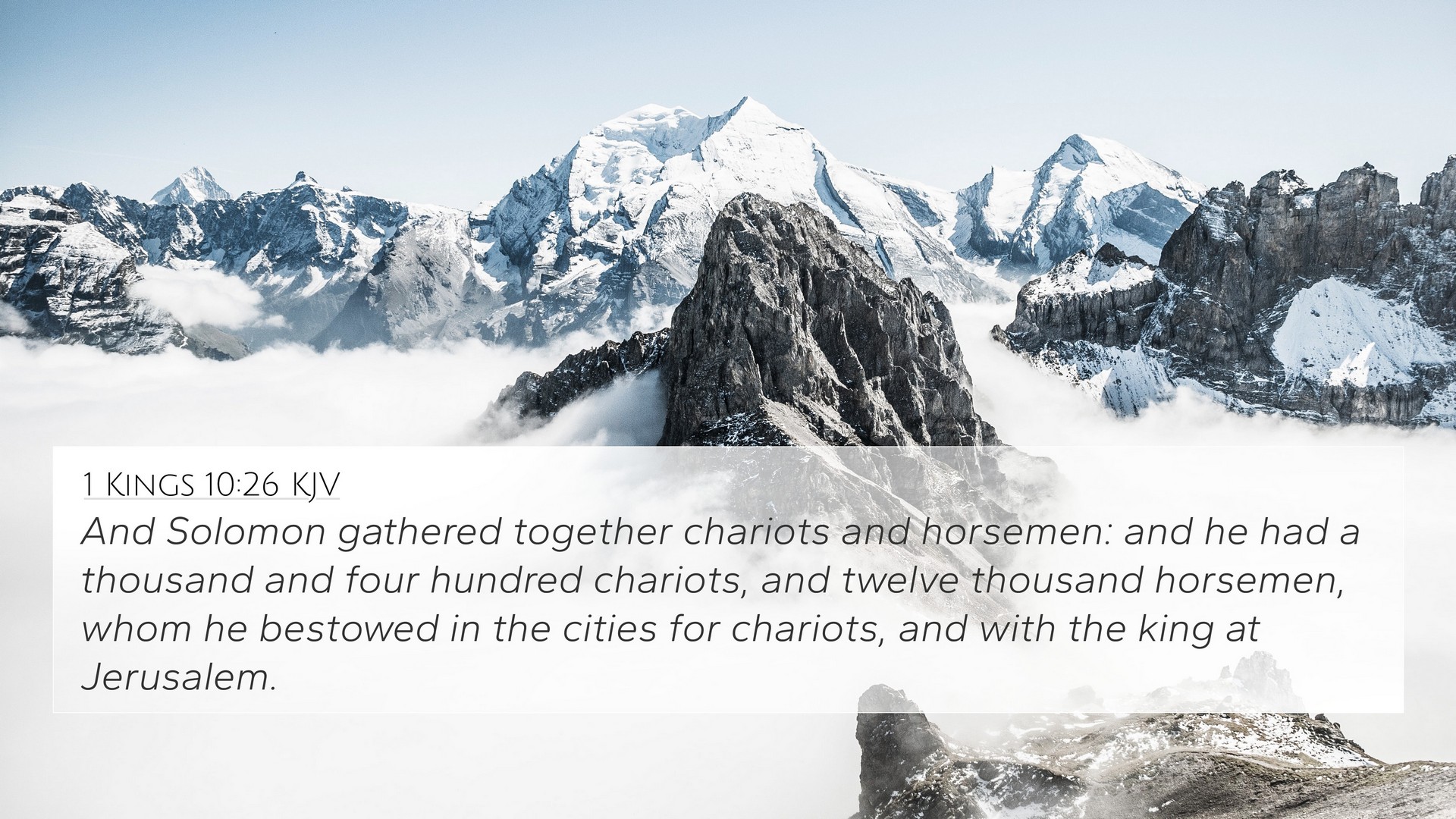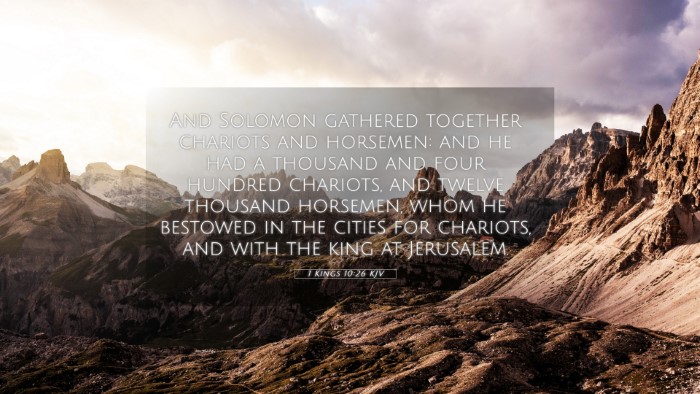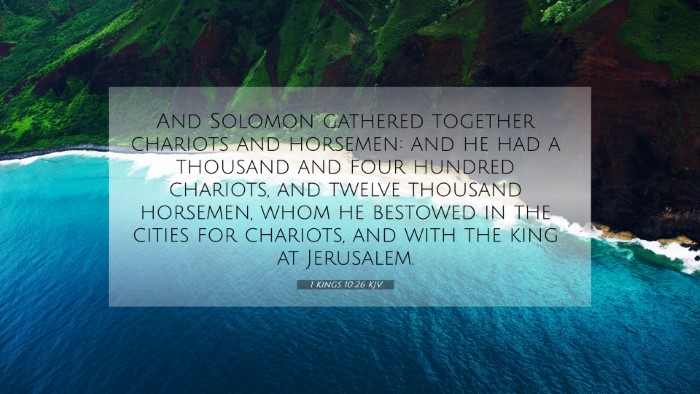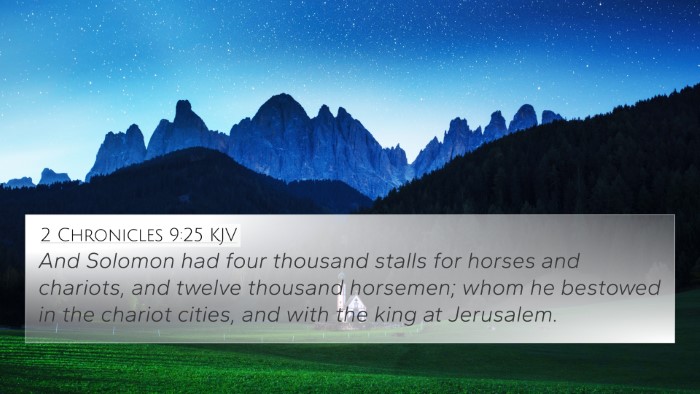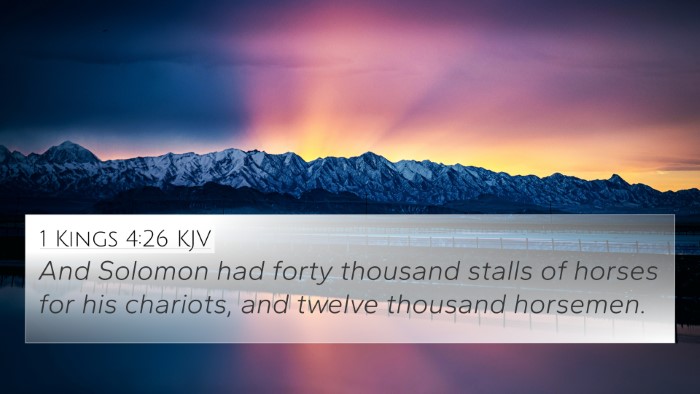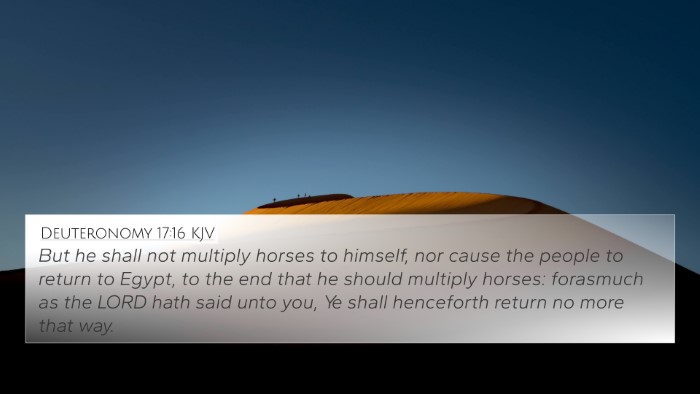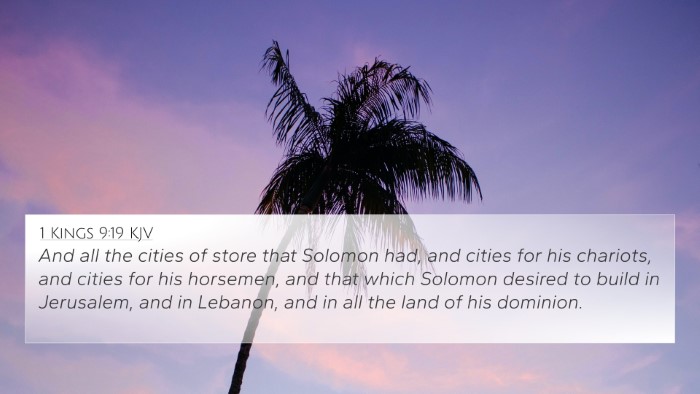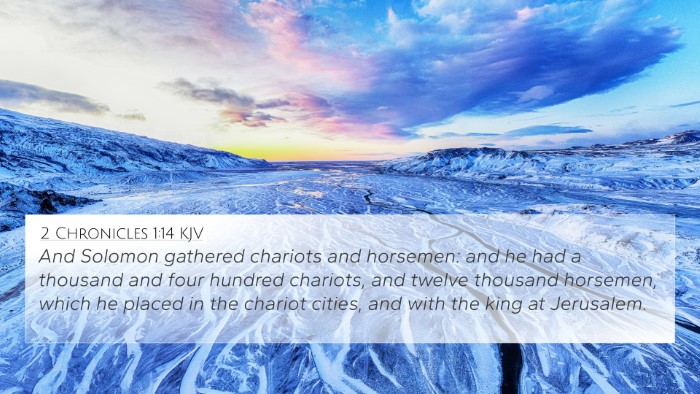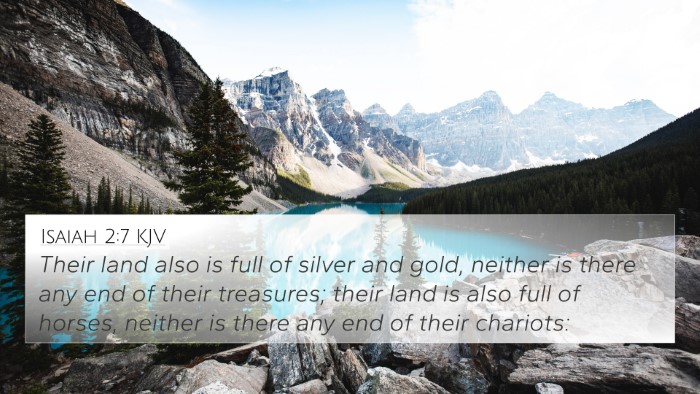1 Kings 10:26 states, "And Solomon gathered together chariots and horsemen; and he had a thousand and four hundred chariots, and twelve thousand horsemen, whom he bestowed in the cities of chariots, and with the king at Jerusalem."
Summary of 1 Kings 10:26
This verse illustrates the immense wealth and military power of King Solomon. In the context of the chapter, it also reflects on the wisdom and statesmanship that characterized Solomon's reign.
Insights from Public Domain Commentaries
Matthew Henry's Commentary
Matthew Henry emphasizes that Solomon's gathering of chariots and horsemen signifies his preparation for defense and potential warfare. He notes that this accumulation of military strength is a display of worldly power, which contrasts with the reliance on God's support. Henry also points out that this prosperity is a fulfillment of God's promise to David, implying that blessings can lead to responsibility for wise governance.
Albert Barnes' Commentary
Albert Barnes focuses on the logistical aspects of Solomon's empire, highlighting the administrative skill required to manage such resources. The mention of cities for chariots indicates a system of organization within the kingdom, pointing to Solomon's strategic capabilities in protecting his realm. Barnes also draws parallels with Egypt, where the use of chariots was prominent, noting that Solomon’s military might was similar to that of great nations.
Adam Clarke's Commentary
Adam Clarke discusses the implication of Solomon’s military buildup as a sign of both strength and potential danger. He warns that while a king may seek alliances and fortifications, reliance on arms can divert faith from God. Clarke suggests that the mention of horses and chariots signals a desire for security that may undermine spiritual dependence. He reflects on how Solomon's splendor symbolized Israel's peak, yet foreshadowed issues that would arise in future generations.
Cross-References for Comparative Bible Verse Analysis
The verse from 1 Kings 10:26 can be cross-referenced with several biblical passages that resonate with the themes of power, wealth, and divine favor:
- Deuteronomy 17:16-17: Highlights the king's prohibition against multiplying horses, portraying a divine guideline for leadership.
- 1 Kings 4:26: Mentions Solomon’s extensive management of horses, showcasing his wealth and logistical acumen.
- 2 Chronicles 1:14: Affirms Solomon’s accumulation of chariots and horsemen, reinforcing his military strength.
- Psalm 20:7: Discusses the difference between trust in chariots and horses versus trust in the name of the Lord.
- Isaiah 31:1: Warns against relying on Egypt for help, linking the theme of trust to military reliance.
- Ecclesiastes 8:4: Explores the power of kings and decrees, reflecting on authority and governance.
- 1 Kings 10:1: Relates to the Queen of Sheba’s visit, showcasing Solomon's wisdom and wealth.
Thematic Connections and Interpretations
The provisions in this passage give a window into thematic Bible verse connections regarding the nature of earthly power compared to spiritual reliance. Here are some additional parallels and their themes:
- 1 Samuel 8:10-18: Discusses the nature of monarchy and how kings are to be judged.
- Proverbs 21:31: States that "the horse is prepared for the day of battle, but victory belongs to the Lord," reiterating the theme of divine sovereignty.
- Micah 5:10-11: Prophetic reference to reliance on God instead of military might, offering a counter to the power demonstrated by Solomon.
Conclusion
In conclusion, 1 Kings 10:26 serves as a profound reminder of the dual nature of wealth and power in biblical times—a blessing from God that necessitates wise stewardship and spiritual reliance. The insights from public domain commentaries amplify our understanding, while the cross-references enrich our exploration of interconnected Biblical themes. Through tools for Bible cross-referencing, one can uncover deeper meanings, making the scripture applicable to modern followers seeking guidance from God’s Word.
